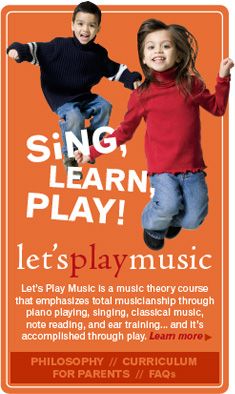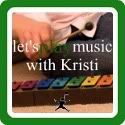While musical activities can help children develop leadership skills, enhance self-esteem and foster a work ethic and dedication to excellence, so can many other activities. What is unique about music that makes it so important for children to learn?
Here are my top 10 reasons:
(adapted from an article by Don Hodges, at The International Society of Music Education.)
1. Feelings. From vague to specific, from grief to joy, music is intrinsically connected with feelings. Music helps us express our feelings and share others emotions.
2. Aesthetic experiences. All human beings have a need for beauty and to activate their innate responsiveness to the organized expressive sounds that we call music.
3. The ineffable. Precisely because music is a nonverbal form of expression it is a powerful means to express or to know that which is difficult or impossible to put into words. Two of the most common human experiences that are frequently known through music are love and spiritual awareness.
4. Thinking. Musical thought is just as viable as linguistic, mathematical, or visual thought. It can be a potent means of expressing ideas and of knowing truth.
5. Structure. Closely allied to the idea of thinking is structure. The human mind seeks patterns, structure, order, and logic. Music provides a unique way of structuring sounds across time, as well as a providing a means of structuring thoughts, feelings, and human experiences. This translates into children doing better in math, science, reading and other school subjects.
6. Time and space. Time and space are the "stuff" of the universe. All human knowledge systems provide ways of dealing with time and space. Although music occurs in "real" time, it deals more with "felt" time. Music, in connection with dance (bodily-kinesthetic knowledge system), is a primary means of experiencing space in time. Let's Play Music uses full body movement to facilitate learning.
7. Self-knowledge and self-identity. Music's role in intrinsic, and especially peak (transcendent, life-changing) learning experiences, provides for powerful insights into our private, inner worlds. Many gain their sense of self through a variety of musical activities and experiences.
8. Group Identity. Group identity through music is both inclusive and exclusive in that: (a) music helps cement the bonding of those members of a group who share common ideas, beliefs, and behaviors, and (b) music helps isolate and separate one group from another. In Let's Play Music, we promote bonding between parent and child through music, and we experience music in group lessons.
9. Healing and wholeness. From more specific applications of music in therapy and medicine to more general interactions, music has profound effects on human beings. Music provides a vehicle for the integration of body, mind, and spirit.
10. Fun. Music has the power to brighten your day, make you want to move, and connect you with others. Music is FUN! Let's Play Music classes are centered on learning through fun.
All students should have an opportunity to experience and develop their capabilities in music!
So how do you find out more about Let's Play Music and why it's so special?
You can start by exploring the links at the top of this blog and by visiting the Let's Play Music website. Go ahead and register here before classes fill up!
Or if you want to see what classes are really like first, you are welcome to join in on a class for free before signing up (contact me to find out when to come) or watch this demo video.
Here are some important dates to remember for 2012 registration:
- Wednesday, August 1: Date to REGISTER BY to receive materials on time
- Saturday, August 11: Parent Orientation meeting for ALL PARENTS
- Thursday, August 16: Classes START for 1st year students
- Thursday, September 6: LATE registration deadline for any spots still available
Go ahead and sign up now! You'll be glad you did!








No comments:
Post a Comment